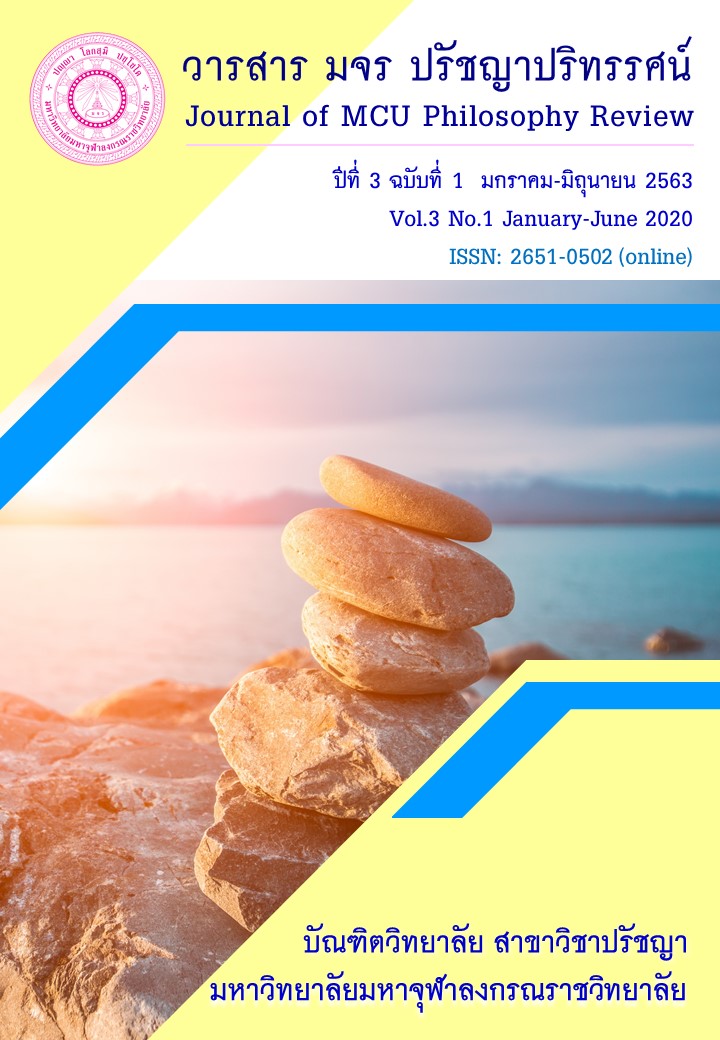A Speech Act and the Ordination in Theravada Buddhist Philosophy
Main Article Content
Abstract
This article entitled to study the concept of the SPEECH ACT AND the ordination in Theravada Buddhist Philosophy. This is a qualitative research done by studying academic documents. it was found that in the first, the speech act is a concept that explains how we use words to communicate effectually. Second, the ordination in the Buddhism makes the people to be the monk. If the people became the monk, the other people will believe or not. The SPEECH ACT AND the ordination mean to make the people to be the monk. In fact, it could change in own mind but couldn’t change in human being. When they show the monkhood, the other people can believe the monkhood. On the other hand, the ordination included the permission of the ordained person. By the way, the permission to ordain is considered to be independent, but to be live by law and Sangha.
Article Details
บทความที่ได้รับการตีพิมพ์เป็นลิขสิทธิ์ของวารสาร มจร ปรัชญาปริทรรศน์
ข้อความในบทความที่ได้รับการตีพิมพ์ในวารสาร ถือเป็นความรับผิดชอบของผู้เขียนบทความ และข้อคิดเห็นนั้นไม่ถือว่าเป็นทัศนะและความรับผิดชอบของกองบรรณาธิการวารสาร มจร ปรัชญาปริทรรศน์
References
พระพรหมคุณาภรณ์ (ป.อ.ปยุตฺโต). (2553). พจนานุกรมพุทธศาสน์ ฉบับประมวลศัพท์, พิมพ์ครั้งที่ 15, กรุงเทพมหานคร: สหธรรมิก.
มหาจุฬาลงกรณราชวิทยาลัย. (2539). พระไตรปิฎกภาษาไทย ฉบับมหาจุฬาลงกรณราชวิทยาลัย.กรุงเทพมหานคร : โรงพิมพ์มหาจุฬาลงกรณราชวิทยาลัย.
ราชบัณฑิตยสถาน. (2553). พจนานุกรมศัพท์ภาษาศาสตร์ (ภาษาศาสตร์ประยุกต์). กรุงเทพมหานคร : ราชบัณฑิตยสถาน.
สุริยา รัตนกุล. (2555). อรรถศาสตร์เบื้องต้น. พิมพ์ครั้งที่ ๒. กรุงเทพมหานคร : มหาวิทยาลัยมหิดล.
โสรัจจ์ หงศ์ลดารมภ์. (2552). ปรัชญาภาษา. กรุงเทพมหานคร : จุฬาลงกรณ์มหาวิทยาลัย.
Austin, John L. (1962). How to Do Things with Words. Oxford: Oxford University Press.


